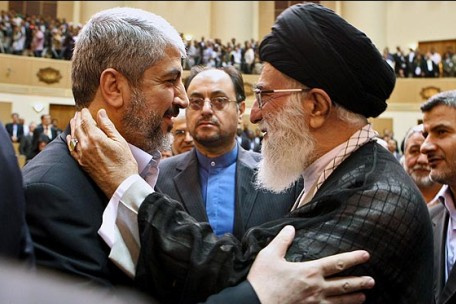The Sound of Tehran's Footsteps Heard Again in the Region

IRD: Two weeks after the Islamic Awakening Conference, Tehran hosted political and parliamentary delegations that had gathered to support the Palestinians’ intifada. Seeing Turkey as a powerful rival trying to take helm of the region with its secular discourse, Iran strives to revive its unique Islamist discourse in the Middle East and North Africa. Experts believe that thirty-two years after the victory of the Islamic Revolution, Tehran has not wavered from its dream to unite the Muslim ummah (nation), to strengthen Islamist groups and to pave the way for the establishment of theocratic governments in the region. The majority of groups attending the Islamic Awakening Conference were well-known advocators of the Muslim nation doctrine, inclined to support Tehran’s high-octane efforts to nullify the Western (and now Turkish) agenda which stands at odds with Iran’s regional ideals.
The Palestinian Intifada Conference, with its explicit motto “Palestine the Home of Palestinians” tried to voice demands contradictory to what is heard from the moderate government of Mahmoud Abbas these days. While UN members will be voting for or against the Palestinian Authority’s bid for acknowledgement of a sovereign Palestinian state, the Tehran Conference meaningfully fits in the context.
According to Alaeddin Boroujerdi, the Head of the National Security and Foreign Policy Committee of the Majles (Parliament), “Considering the current regional circumstance and the [wave of] Islamic Awakening, in the successfully held [Islamic Awakening] conference held recently in Tehran and the words of the Supreme Leader of Iran, the Palestine conference is a complement to the Islamic Awakening Conference. Besides, it can set a new movement to strengthen the great resistance of Palestine.”
In the meantime, the Principlist newspapers and media with close ties to the establishment have run a series of analyses in rejection of Mahmoud Abbas’ statehood bid. Ardent supporters of the Resistance argue that the proposal for the recognition of Palestine as a sovereign state is against the Palestinian cause, as it implies the recognition of Israel as a legitimate state. The moderates, on the other hand, argue that the plan partially meets the Palestinians’ dream, and the realization of all of their rights can be the next step.

